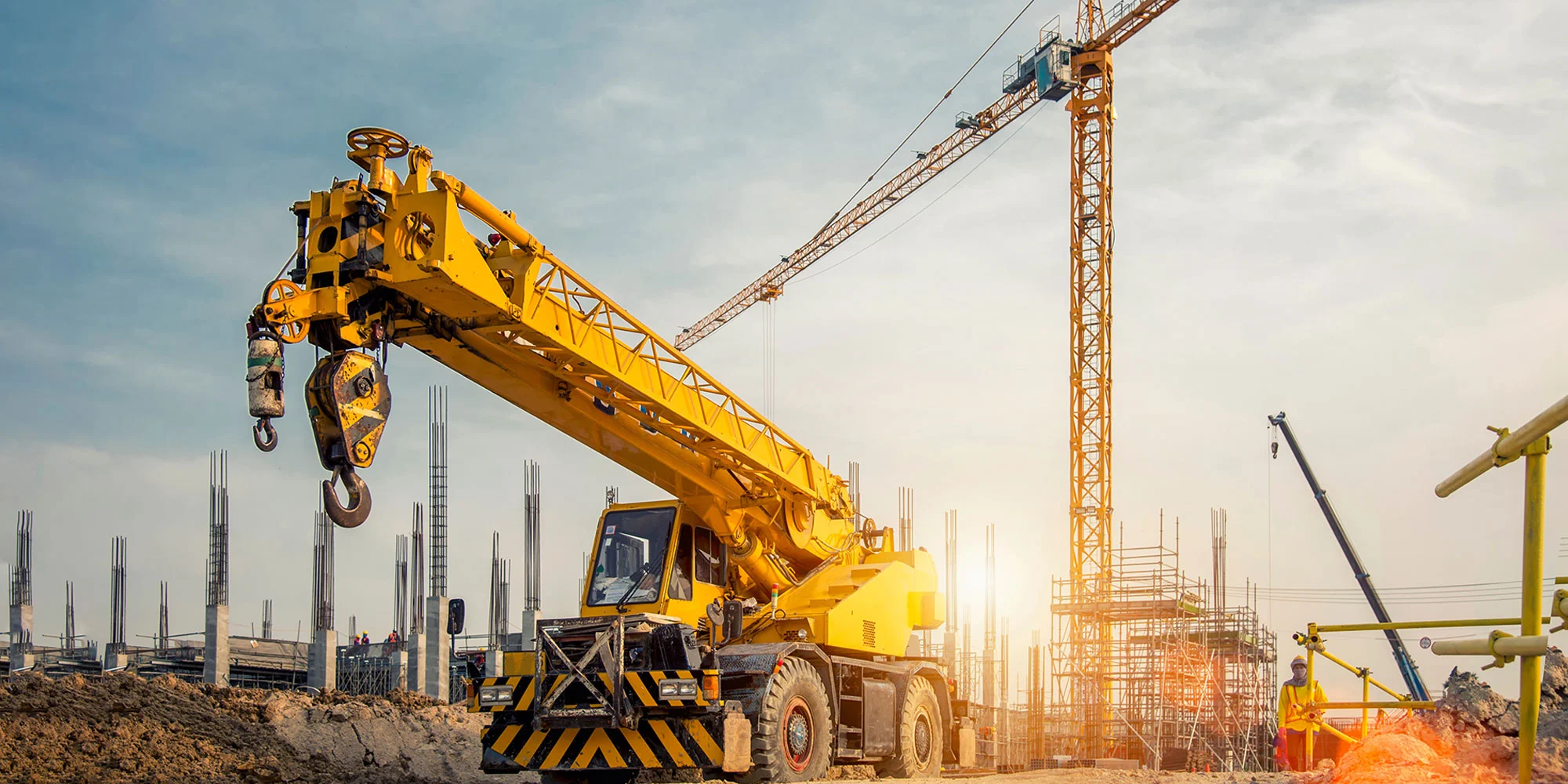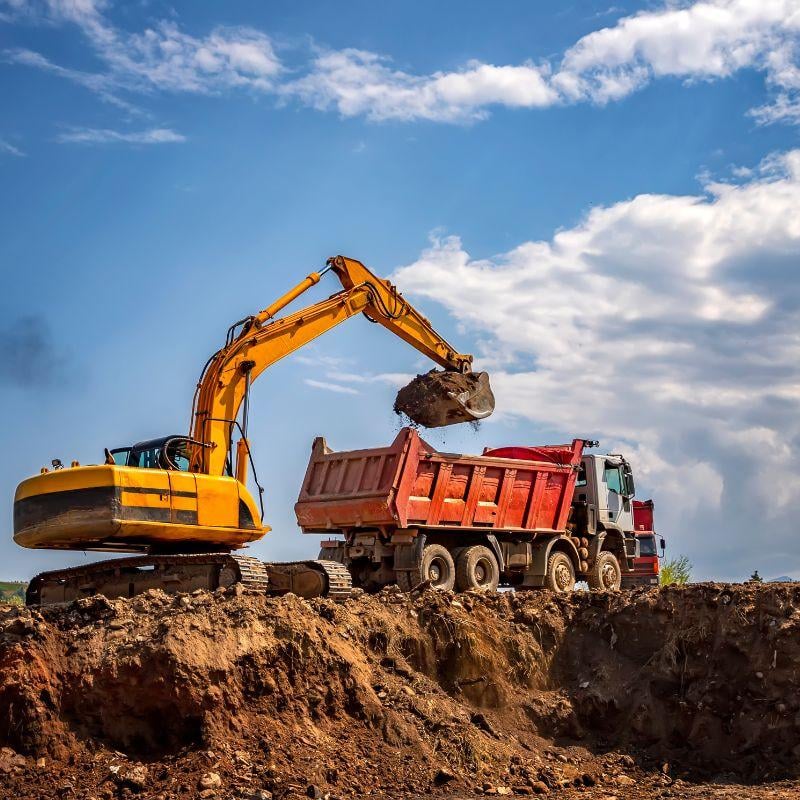Construction Equipment Rentals in Tuscaloosa, AL: Everything You Need for Your Work Site
Construction Equipment Rentals in Tuscaloosa, AL: Everything You Need for Your Work Site
Blog Article
Discovering the Financial Advantages of Leasing Construction Tools Contrasted to Possessing It Long-Term
The choice between possessing and leasing construction equipment is essential for financial management in the sector. Renting deals prompt price savings and functional adaptability, allowing firms to allot resources extra efficiently. In contrast, possession includes considerable lasting financial commitments, consisting of upkeep and devaluation. As professionals weigh these choices, the influence on cash circulation, task timelines, and modern technology gain access to ends up being progressively substantial. Comprehending these nuances is vital, particularly when taking into consideration how they straighten with details task needs and financial techniques. What factors should be prioritized to guarantee optimum decision-making in this complex landscape?

Expense Comparison: Renting Vs. Having
When evaluating the economic effects of renting versus possessing building and construction devices, an extensive cost contrast is crucial for making educated choices. The selection in between renting out and having can considerably impact a company's profits, and understanding the connected prices is critical.
Renting out building and construction equipment generally includes lower ahead of time prices, permitting organizations to assign capital to other functional demands. Rental prices can gather over time, potentially surpassing the expenditure of ownership if tools is needed for an extended period.
Conversely, having building and construction equipment calls for a substantial preliminary investment, in addition to recurring costs such as funding, devaluation, and insurance policy. While ownership can cause long-term savings, it also locks up funding and might not provide the exact same level of adaptability as renting. In addition, possessing tools demands a commitment to its usage, which may not constantly straighten with job needs.
Inevitably, the decision to own or rent out needs to be based on a detailed evaluation of details job demands, financial capability, and lasting tactical objectives.

Maintenance Expenditures and Duties
The choice in between renting out and having building devices not only includes monetary factors to consider however also encompasses continuous maintenance expenditures and duties. Possessing equipment calls for a considerable commitment to its maintenance, which consists of regular examinations, repair work, and possible upgrades. These obligations can rapidly collect, leading to unanticipated prices that can strain a budget plan.
In comparison, when leasing tools, maintenance is typically the responsibility of the rental business. This setup allows contractors to prevent the financial problem linked with damage, along with the logistical obstacles of scheduling repair work. Rental agreements typically include arrangements for maintenance, indicating that professionals can concentrate on completing jobs as opposed to worrying about devices problem.
Furthermore, the varied series of devices available for rent makes it possible for companies to choose the latest designs with advanced innovation, which can boost effectiveness and efficiency - scissor lift rental in Tuscaloosa, AL. By going with services, services can prevent the long-term responsibility of devices devaluation and the linked upkeep headaches. Eventually, assessing upkeep expenses and obligations is vital for making an informed decision regarding whether to own or rent out building and construction tools, significantly impacting overall job prices and functional performance

Depreciation Influence On Ownership

A substantial variable to take into consideration in the choice to possess building and construction tools is the impact of devaluation on total possession expenses. Devaluation stands for the decrease in value of the equipment gradually, influenced by aspects such as usage, damage, and improvements in modern technology. As equipment ages, its market price diminishes, which can dramatically affect the owner's financial placement when it comes time to sell or trade the tools.
For building business, this devaluation can translate to significant losses if the equipment is not made use of to its maximum possibility or if it comes to be outdated. Proprietors should account for devaluation in their monetary forecasts, which can result in higher total costs contrasted to leasing. Furthermore, the tax effects of depreciation can be intricate; while it might offer some tax obligation advantages, these are frequently countered by the reality of minimized resale worth.
Eventually, the burden of devaluation stresses the significance of understanding the long-term economic commitment entailed in possessing construction tools. Companies must meticulously evaluate how frequently they will use the devices and the prospective monetary influence of devaluation to make an informed decision concerning possession versus renting.
Financial Adaptability of Renting
Renting out building and construction tools supplies considerable economic versatility, permitting firms to allot sources a lot more efficiently. This flexibility is especially essential in a sector defined by varying job demands and differing work. By deciding to rent, companies can stay clear of the significant capital outlay required for buying tools, preserving capital for various other functional requirements.
Additionally, renting out equipment makes it possible for business to tailor their equipment choices to certain project demands without the long-lasting dedication connected with possession. This means that organizations can quickly scale my response their devices stock up or down based on present and anticipated task needs. Consequently, this adaptability lowers the risk of over-investment in machinery that may become underutilized or outdated in time.
One more monetary benefit of leasing is the capacity for tax benefits. Rental settlements are commonly taken into consideration operating costs, enabling for instant tax obligation reductions, unlike depreciation on owned tools, which is topped a number of years. scissor lift rental in Tuscaloosa, AL. This prompt expense recognition can further improve a company's cash money setting
Long-Term Project Considerations
When reviewing the long-lasting demands of a building and construction organization, the choice between owning and renting tools comes to be much more complex. Secret elements to consider consist of task duration, regularity of use, and the nature of upcoming jobs. For projects with prolonged timelines, purchasing equipment may appear advantageous because of the capacity for reduced total prices. Nevertheless, if the devices will not be made use of regularly throughout tasks, possessing may bring about underutilization and unneeded expenditure on maintenance, storage, and insurance coverage.
In addition, technical improvements position a considerable factor to consider. The image source building and construction sector is developing quickly, with new devices offering boosted effectiveness and safety features. Renting enables firms to access the most recent modern technology without committing to the high ahead of time prices related to investing in. This flexibility is particularly advantageous for businesses that take care of varied tasks calling for various types of equipment.
Moreover, economic stability plays a critical function. Owning devices frequently involves significant capital expense and depreciation issues, while renting allows for more foreseeable budgeting and cash flow. Inevitably, the option between having and renting ought to be straightened with the strategic objectives of the building organization, considering both anticipated and present project demands.
Conclusion
In conclusion, renting construction equipment provides considerable monetary advantages over long-lasting ownership. Ultimately, the decision to rent rather than own aligns with the vibrant nature of building and construction tasks, allowing for versatility and accessibility to the most current equipment without the economic burdens associated with ownership.
As tools ages, its market value lessens, which can substantially impact the proprietor's economic setting when it comes time to sell or trade the equipment.
Leasing building equipment offers substantial monetary versatility, allowing firms to designate resources more successfully.Furthermore, renting tools makes it possible for business to tailor their tools selections to specific job needs without the lasting commitment associated with ownership.In verdict, leasing building devices supplies considerable monetary advantages over long-lasting used construction equipment for sale ownership. Inevitably, the decision to rent rather than own aligns with the dynamic nature of construction jobs, permitting for versatility and access to the latest devices without the financial worries linked with ownership.
Report this page